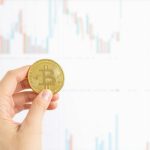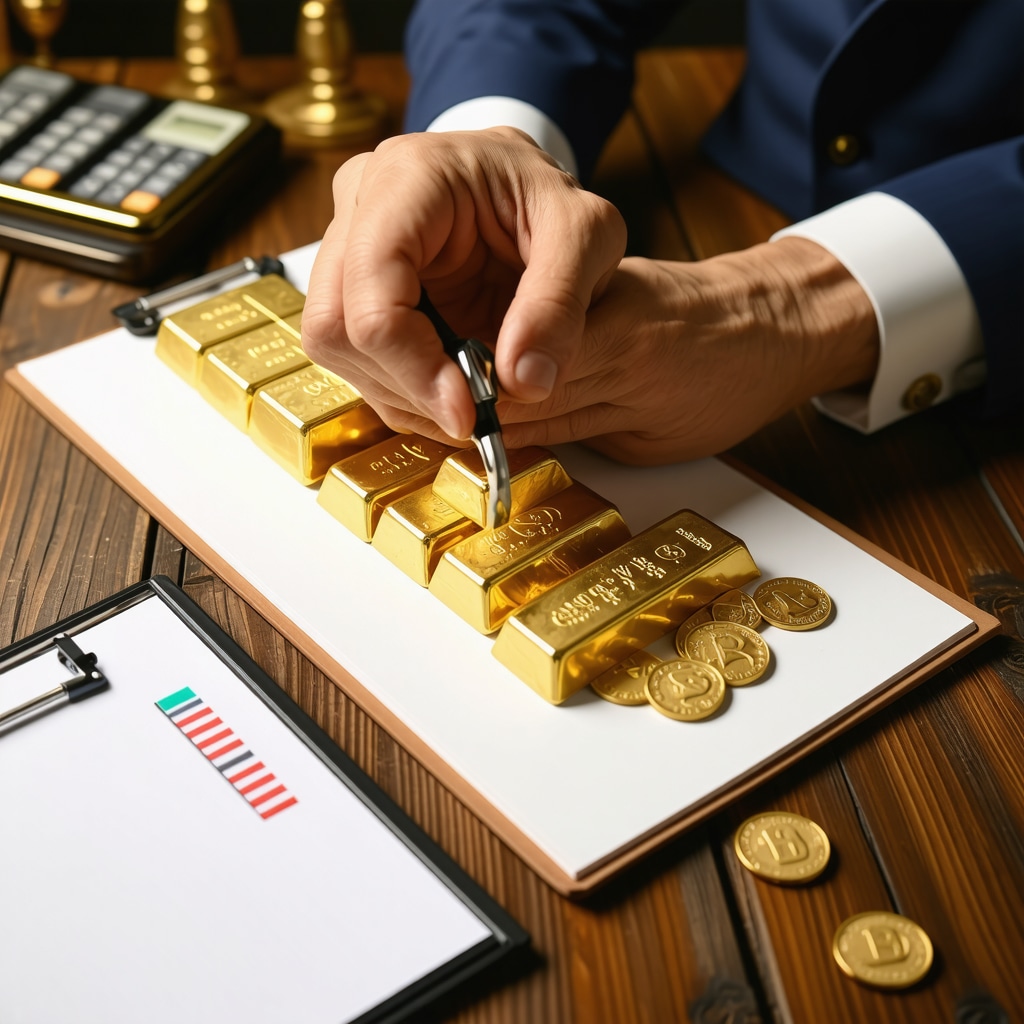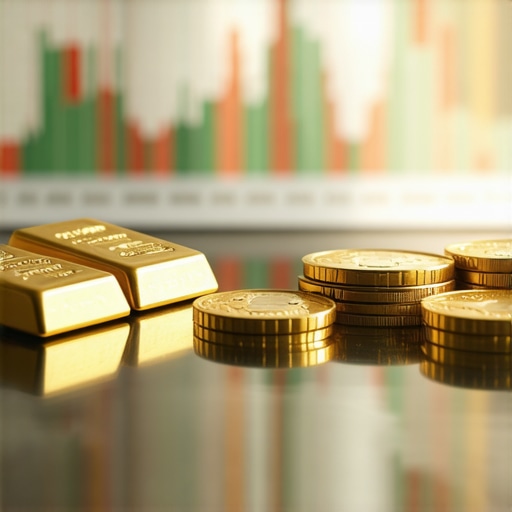How I Learned to Spot Trustworthy Gold Dealers
When I first decided to invest in physical gold, I was overwhelmed by the sheer number of options and the risk of counterfeit products. I remember scrolling through countless websites and visiting local shops, unsure which dealers were truly reliable. That experience taught me the importance of a solid gold dealers checklist to ensure both trustworthiness and quality in my purchases.
Why Trust Matters More Than Ever in Gold Buying
Gold isn’t just a shiny metal; it’s a store of value that requires trust between buyer and seller. Early on, I learned that a reputable dealer often provides transparent information about purity standards, certifications, and clear return policies. In my research, I found that dealers accredited by recognized bodies or those with longstanding positive customer feedback tend to be more reliable. This aligns with expert advice from sources like the Investopedia guide on gold investing, which highlights the importance of verifying dealers’ credentials.
What Are the Must-Have Checks on My Gold Dealers Checklist?
Over time, I narrowed down my checklist to several key factors: verifying the dealer’s authenticity, ensuring they provide assay certificates, checking for fair pricing aligned with current market rates, and reviewing their customer service responsiveness. I also learned that understanding the types of physical gold investments — whether coins, bars, or bullion — helps me ask the right questions and avoid scams. For anyone just starting, I recommend reading about how to choose reliable gold dealers for safe purchases to get a comprehensive view.
Lessons from My First Gold Purchase: Quality Over Quantity
My first gold purchase was a small 1-ounce coin from a dealer who checked all my boxes. The feeling of holding that coin was reassuring; I knew I had a tangible asset with verified quality. However, I also learned that chasing lower prices can cost you in authenticity and service. The gold market fluctuates, and trusted dealers often explain pricing transparently, which I found invaluable. This experience made me realize that a well-researched purchase is a long-term investment in peace of mind.
How Has This Checklist Changed My Investment Strategy?
Incorporating my gold dealers checklist into each purchase has made me more confident and less anxious about market volatility. It also complements my broader understanding of gold supply and demand dynamics, which I explore further in resources like this detailed explanation on gold supply and demand. With a trustworthy dealer, I focus more on strategic timing and investment diversification rather than worrying about counterfeit risks.
Have You Had Experiences with Gold Dealers That Taught You Valuable Lessons?
I’d love to hear from you—whether you’ve had smooth transactions or challenging encounters in your gold-buying journey. Sharing these stories can help all of us sharpen our own gold dealers checklist and make smarter investments. Feel free to leave a comment below or share your insights!
Diving Deeper into Dealer Transparency: Why Documentation Matters
One of the most critical aspects I’ve added to my gold dealers checklist is the scrutiny of documentation accompanying each purchase. Beyond just an assay certificate, I look for detailed provenance records and hallmark certifications that are internationally recognized. These documents serve as a gold standard (pun intended) for authenticity and traceability. For example, dealers associated with accredited institutions such as the London Bullion Market Association (LBMA) often provide higher assurance of legitimacy and quality. This nuanced understanding has helped me avoid pitfalls that less diligent investors might encounter.
Expert Tip: How Do Market Conditions Influence Dealer Credibility?
During periods of high market volatility or gold price spikes, some dealers might exploit the situation by inflating premiums or selling subpar products. I ask myself: How does the current market environment affect the reliability of gold dealers and what safeguards can investors implement? Understanding that supply and demand dynamics can pressure dealers to deviate from fair practices is crucial. This awareness drives me to cross-reference dealer prices with real-time market rates and consult trusted resources on gold market fluctuations, such as expert analyses on supply changes and price impacts. Staying informed empowers me to discern genuine offers from opportunistic ones.
The Role of Customer Service and After-Sales Support in Gold Purchases
Another refined element in my checklist is evaluating the dealer’s customer service quality and post-purchase support. Reliable dealers provide clear communication channels and are transparent about return policies, storage options, and potential buyback programs. This ongoing relationship adds a layer of security, especially for investors who plan to build a long-term portfolio. It’s not just about the initial transaction but the dealer’s commitment to supporting the investor’s evolving needs.
How Does Understanding Gold Investment Types Enhance Dealer Selection?
Expanding knowledge about various physical gold investments—coins, bars, bullion—has sharpened my ability to ask targeted questions and assess dealer expertise. For instance, dealers specializing in collectible coins might offer different value propositions compared to those focusing on bullion bars. This distinction informs my choice depending on investment goals, liquidity preferences, and risk tolerance. Exploring this further can be essential, and I recommend reading this comprehensive guide on types of physical gold investments for a more detailed understanding.
What Are the Subtle Signs That Reveal a Dealer’s True Expertise?
In my experience, true expertise manifests in a dealer’s ability to educate their clients proactively about market trends, product specifics, and investment strategies. I look for signs such as detailed product descriptions, willingness to share market insights, and transparency regarding fees and premiums. These subtle indicators often distinguish seasoned professionals from opportunistic sellers. Additionally, expert dealers typically maintain a well-documented history of customer satisfaction, which can be verified through reviews and industry endorsements.
According to a recent analysis by the World Gold Council, informed investors who engage with knowledgeable dealers tend to achieve better risk-adjusted returns over time, underscoring the importance of dealer expertise in gold investments (World Gold Council Research).
If you’ve had experiences with gold dealers—whether positive or challenging—sharing your story can benefit others navigating this complex market. Feel free to leave a comment or share this article to help expand our community’s collective wisdom.
When Patience Meets Due Diligence: The Art of Building Dealer Relationships
Over the years, I’ve realized that trust in gold dealers isn’t built overnight—it evolves through consistent interactions, transparency, and mutual respect. Early on, I used to focus solely on the transactional aspect, but now I value dealers who take time to educate and engage beyond just making a sale. This ongoing relationship has made me more comfortable asking nuanced questions about market conditions or upcoming trends, which, in turn, has enriched my investment strategy. If you want to deepen your understanding, exploring how central bank gold purchases influence global prices gave me fresh perspective on macro factors dealers often reference.
How Do Dealers’ Responses to Market Volatility Reflect Their True Reliability?
This question has become a litmus test in my checklist. When gold prices swing dramatically, I observe how dealers communicate and adjust. Are they transparent about premiums increasing due to supply constraints? Do they offer clear explanations, or do they dodge questions? Genuine dealers often use such times to reinforce trust through honesty rather than opportunistic pricing. For example, during recent spikes, some dealers I follow openly shared detailed market analyses, helping clients understand price drivers rather than just pushing sales. Such responsiveness, I believe, signals a higher caliber of expertise and integrity.
In fact, studies from the World Gold Council emphasize that investor education and transparent communication from dealers significantly reduce risk and enhance long-term investor confidence.
Reflecting on Documentation Beyond Certificates: A Personal Standard
While assay certificates are essential, I’ve grown increasingly attentive to the subtle layers of documentation that accompany a purchase. Provenance records, hallmark authenticity, and even packaging seals have become critical in verifying the story behind a piece of gold. This attention to detail has saved me from questionable deals and deepened my appreciation for dealers who uphold rigorous standards. If you are curious about these standards, the guide on choosing reliable gold dealers offers excellent advice on vetting documentation rigorously.
Personal Reflections on the Emotional Side of Buying Physical Gold
One aspect often overlooked is the emotional reassurance that comes with buying physical gold from a trusted dealer. Holding a tangible asset that you know is authentic creates a sense of security that digital investments sometimes lack. This emotional connection has influenced my buying habits—I’ve become more deliberate, choosing quality and trust over impulsiveness. It’s a subtle but powerful shift that has made my gold investments a source of calm amid broader financial uncertainties.
For those interested, exploring the nuances between coins, bars, and bullion can help clarify what best suits your emotional and financial comfort zones; I found this detailed explanation particularly insightful.
What’s the One Thing You Wish You’d Known Before Your First Gold Purchase?
Reflecting on my own journey, I often wonder what other investors might say to this question. For me, it was the value of patience and incremental learning—trying to rush into buying without fully understanding market nuances and dealer reputations could have cost me dearly. I invite you to share your thoughts or experiences in the comments below. Your stories not only enrich this community but also help others develop a sharpened gold dealers checklist and avoid common pitfalls.
Unveiling the Psychological Nuances Behind Dealer Selection
Delving deeper into my journey, I’ve come to appreciate that selecting a gold dealer is as much a psychological exercise as it is a transactional one. Trustworthiness is often communicated not just through documentation or pricing but via subtle interpersonal cues during interactions. For example, a dealer’s patience in answering complex queries or their willingness to share market insights without pushing a sale often signals a genuine commitment to client education. Recognizing these behavioral nuances has refined my gold dealers checklist beyond mere technical verifications, aligning it with emotional intelligence and relational trust.
This realization resonates with behavioral finance principles, where investor confidence is tightly interwoven with the quality of advisory relationships. In this context, a gold dealer acts as both a merchant and a trusted advisor, helping to navigate market complexities.
How Can Advanced Investors Leverage Dealer Relationships for Strategic Market Timing?
Experienced investors often tap into the knowledge reservoirs held by seasoned dealers to optimize market entry and exit points. I’ve learned to cultivate relationships that go beyond standard transactions—engaging in candid dialogues about anticipated supply disruptions, geopolitical tensions, and central bank activities that could sway gold prices. These conversations often provide nuanced perspectives that mainstream market analyses might overlook.
For instance, understanding how central bank gold purchases influence global prices has been pivotal in my timing strategies. I recommend exploring this insightful resource to grasp the macroeconomic undercurrents dealers frequently reference. Integrating such intelligence with real-time price movements empowers investors to anticipate premium fluctuations and negotiate better deals.
Moreover, I’ve noticed that dealers with transparent communication during volatile phases tend to share predictive analytics or historical data trends, which have been invaluable in refining my portfolio adjustments.
Integrating Sustainability and Ethical Sourcing Into the Gold Dealers Checklist
Another sophisticated layer I’ve incorporated pertains to the ethical dimension of gold sourcing. In recent years, my checklist evolved to prioritize dealers who can verify the provenance of their gold through conflict-free certifications and environmentally responsible mining practices. This shift reflects a broader personal commitment to socially responsible investing, recognizing that the origins of physical gold profoundly impact its long-term value and investor peace of mind.
Some dealers provide detailed supply chain transparency, including third-party audits and adherence to standards like the Responsible Jewellery Council (RJC). Engaging with such dealers not only supports ethical mining communities but also mitigates reputational risks that could affect liquidity or resale value.
Decoding Premium Structures: When Is Paying More Justified?
Premiums above spot price are inevitable in physical gold purchases, but discerning when these premiums are fair versus exploitative is a nuanced skill I’ve honed. Trusted dealers transparently explain their premium compositions, reflecting factors like manufacturing costs, assay certifications, and market demand surges. During spikes, I cross-reference these premiums against analyses found in expert market reports to validate fairness.
For me, paying a higher premium is justified when it ensures guaranteed authenticity, liquidity through buyback programs, or access to collectible pieces with numismatic value. Conversely, steep premiums without clear rationale or documentation raise red flags. This discernment has saved me from costly mistakes and enhanced the strategic deployment of capital within my portfolio.
How Does Dealer Expertise Influence Post-Purchase Portfolio Management?
Beyond the initial acquisition, dealer expertise significantly shapes ongoing portfolio management. Dealers who offer after-sales insights—such as market outlooks, storage recommendations, and liquidation options—have become essential partners in my investment journey. This dynamic transforms the dealer relationship into a collaborative alliance, fostering adaptability amid shifting economic landscapes.
For readers intrigued by how different physical gold forms impact portfolio strategy, I suggest reviewing this detailed comparison, which complements dealer guidance and frames decisions within personal financial goals.
Elevating Your Gold Investment Experience: Join the Conversation
I invite you to share your evolved strategies or nuanced dealer experiences in the comments below. Whether you’ve integrated ethical sourcing considerations or mastered premium negotiations, your insights can catalyze a richer dialogue and empower fellow investors. Let’s collectively sharpen our gold dealers checklist and elevate our investment acumen through shared wisdom.
Remember, the journey to mastering gold investing is ongoing—each transaction and interaction refines our approach. Engage with me and our community to explore these advanced themes further, and together, we’ll navigate the complexities of the gold market with confidence and clarity.
Things I Wish I Knew Earlier (or You Might Find Surprising)
Trust Is Built Over Time, Not Overnight
In my early days, I thought finding a trustworthy gold dealer was a quick checklist task. What I didn’t realize was how much patience and repeated positive experiences shape genuine trust. It’s more than certificates or pricing—it’s about consistent transparency and a dealer who treats you like a partner rather than just a customer.
Documentation Goes Beyond Certificates
Initially, I focused only on assay certificates, but over time I learned to value provenance records, hallmark authenticity, and even packaging seals. These nuances provide a richer story behind each piece of gold and protect you from subtle counterfeits or questionable origins.
Premiums Can Be Fair When Explained Clearly
Paying above spot price once scared me, but now I see that well-justified premiums reflect quality assurance, liquidity options, or collectible value. The key is dealer transparency about what composes the premium. If they can’t explain it clearly, that’s a red flag.
The Emotional Reassurance Matters
Buying physical gold isn’t just a financial move—it’s an emotional anchor. Holding a tangible, authenticated asset brings a calmness digital investments often lack. This emotional layer has made me more deliberate and less impulsive in my gold purchases.
Dealer Expertise Shapes More Than Just the Sale
Good dealers don’t disappear after the transaction. Those who offer ongoing market insights, storage advice, and buyback options become trusted allies in managing your portfolio through ups and downs.
Resources I’ve Come to Trust Over Time
Investopedia’s Gold Investing Guide: A solid starting point that helped me grasp the fundamentals and understand why verifying dealer credentials is so important. It’s approachable and reliable for beginners and seasoned investors alike.
BuyingGoldNow’s Guides on Choosing Reliable Gold Dealers: Their comprehensive advice on vetting dealers and understanding documentation saved me from several potential pitfalls. I often recommend their how to choose reliable gold dealers article to friends starting out.
World Gold Council Research: For anyone wanting a deeper dive into market trends and behavioral insights, their studies illuminate how dealer transparency and investor education reduce risks. Their research hub is a treasure trove for informed decision-making.
BuyingGoldNow’s Analysis on Gold Supply and Demand: Understanding market forces is crucial. Their explanation of supply and demand helped me put dealer pricing and premiums in context.
BuyingGoldNow’s Guide on Physical Gold Investment Types: Learning the differences between coins, bars, and bullion through their detailed guide sharpened my questions to dealers and clarified my own investment goals.
Parting Thoughts from My Perspective
Reflecting on my journey, developing a thorough gold dealers checklist wasn’t just about avoiding scams—it became a way to gain confidence and peace of mind in an often complex market. Trustworthy dealers who combine transparency, expertise, and ethical sourcing have transformed my gold buying from a stressful task into a rewarding experience.
If this resonated with you, I’d love to hear your thoughts or experiences. Share it with someone who’s considering their first gold purchase, and feel free to drop your own stories in the comments. Together, we can build a community that invests smarter and more securely.










